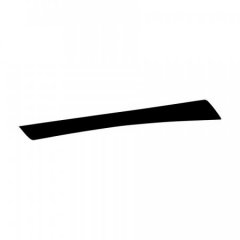Why people think Chinese has no grammar
I have often heard of observations that Chinese grammar is flexible or even that it doesn't have any grammar. This is of course false, as is easily demonstrated in that the meaning of following two Mandarin sentences can be differentiated:
我喝茶
茶喝我
But what, then, are they talking about when they say that Chinese grammar is flexible or that Chinese doesn't have grammar? This is just speculation, but I would think that they have some experience with subject-prominent languages, like English, where there are such things as conjugation (I am, you are), inflection (go, going, gone,...went!), articles (the, an), and such seemingly more "strict" rules such as that there must be a subject in an English sentence, such that we need dummy subjects (it is raining). So this is their idea of grammar.
Topic-prominent languages, such as Chinese, lack such features. Seeing this lack, the uninitiated will say that there is no grammar as they know it.
But while I'm at it, let me clarify this topic/subject stuff for posterity. Both Chinese and English are subject-verb-object (SVO), where in most sentences, the subject is first, then the verb, then the object. Examples:
I (subject) drink (verb) tea (object).
我 (subject) 喝 (verb) 茶 (object)
And yes, I know that "Tea I drink" is also a valid sentence that means the same thing on the surface. I will get to that later.
They are both topic-comment languages, where the topic (what is being talked about) comes before the comment (what is said about the topic). Examples:
I (topic) drink tea (comment).
我 (topic) 喝茶 (comment)
The difference is that English is a subject-prominent language, where SVO is the primary structure, and Chinese is a topic-prominent language, where topic-comment is the primary structure. Now, about "Tea I drink."
Tea (topic) I drink (comment).
茶 (topic) 我喝 (comment)
Now the example sentences are about tea. The new information is now "I drink." The English example uses a secondary way of indicating the topic, where the primary way is intonation. In contrast, the Chinese sentence shows Chinese's primary way of indicating topic: putting it in front. These are also examples of subjects and topics being different.
Check for understanding:
Consider the topic(s), comment(s), and subject(s), if they exist, in each sentence in the following passages.
- The forums have been taken over by zombies. They're impossible to read.
- Tea I drink. Wine I burn. It's how I roll.
Extra credit ![]() : Same thing.
: Same thing.
- 我以毒殺王
- 殺王者 我也
- 所以殺王 毒也



7 Comments
Recommended Comments